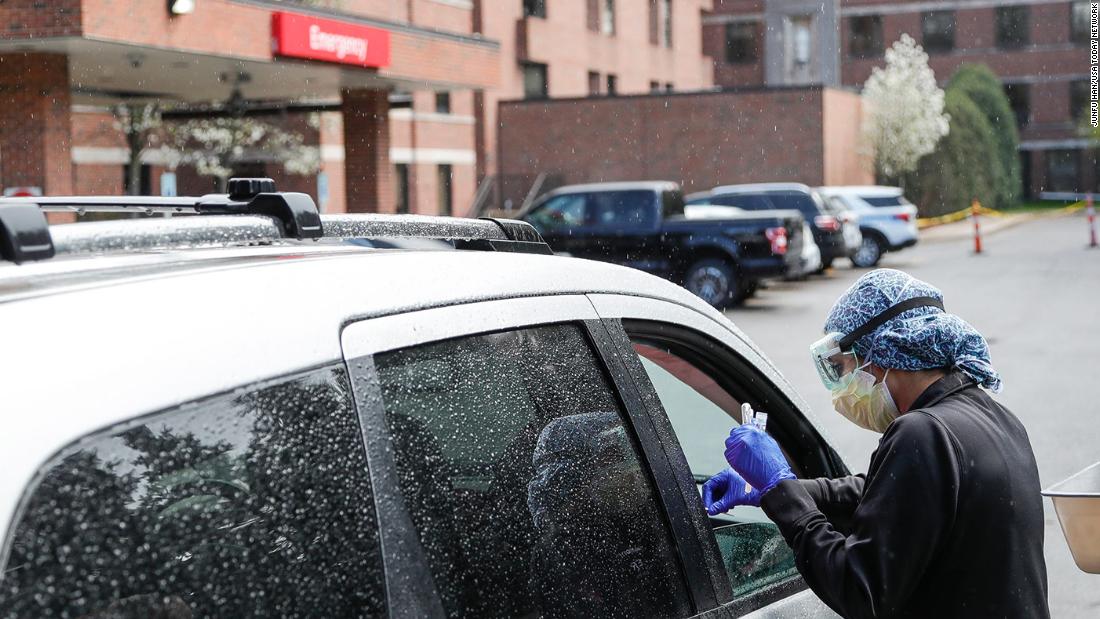
“More people in the United States are getting vaccinated at an accelerated rate every day,” said Centers for Disease Control and Prevention (CDC) director Dr. Rochelle Walensky, at a Covid-19 White House briefing on Monday.
“On the other hand, cases and hospital admissions are on the rise in some parts of the country and the number of cases among younger people who have not yet been vaccinated is also increasing.”
According to data from Johns Hopkins University, the US reported an average of more than 67,000 new Covid-19 infections per day in the past seven days. That is almost 25% more than the seven-day average a month ago.
“People are tired,” Matthew Budd, the director of Personal & Preventative Health Services in Jackson County, Michigan, told CNN last weekend. “We’ve been through all these lockdowns, we’ve been locked up and … now that it’s getting warmer, people are saying, ‘You know, we’re just tired, we want to be out, we want to be around other people.'”
John Fox, the CEO of Beaumont Health – Michigan’s largest health care system – also recently told CNN that it didn’t help that states, including Michigan, recently relaxed Covid-19 restrictions.
In addition, Fox said, some people have strayed from security measures that help stop the spread of the virus.
“I think people have dropped their infection control issues, they don’t wear their masks as often as they should, (or) social distance, hand hygiene,” Fox said.
What the CDC is now recommending for the J&J vaccine
So far, more than 132 million Americans – nearly 40% of the population – have received at least one dose of a Covid-19 vaccine, and more than 85 million – about 25.7% of the population – have been fully vaccinated, according to the CDC- data.
These may include sudden and severe headache, back pain, new neurological symptoms, severe abdominal pain, shortness of breath, leg swelling, small red patches on the skin, and new or easy bruising.
The recommendation to pause came across six reported US cases of a rare and serious type of blood clot among more than 6.8 million Americans who received the J&J vaccine. While the vaccine is still approved, the pause gives scientists time to review the data and determine if the vaccine is actually linked to the blood clots and, if so, whether the recommendations for who should get it should change.
The CDC says any adverse events should be reported through the Vaccine Adverse Event Reporting System.
Walensky said Monday the agency is looking at a “handful” of reported side effects after using the J&J vaccine that were reported through the system.
“These have been a handful of cases, not an overwhelming number of cases,” she said. “We continue to work and assess them and verify that they do indeed reflect a real case.”
Colleges that require vaccinations against Covid-19 in the fall
More than 40 have already announced the requirement, according to a CNN count.
Yale University officials said in a letter to the university community on Monday that all students, graduates and professional school students are expected to be vaccinated before arriving on campus. If they can’t get a vaccine before they return, the university said it will help make vaccination arrangements.
“Although the course of the COVID-19 pandemic remains uncertain in the coming months, vaccination is the strongest tool to prevent transmission of the virus,” said a letter from Peter Salovey, president of Yale University and Provost Scott Strobel.
“There is abundant evidence of the vaccines’ effectiveness and growing confidence that vaccines will be widely available by the beginning of the summer,” the letter added.
Columbia University made a similar announcement Monday, saying it will help provide vaccines to students who have not been vaccinated.
“We view this decision as essential to safeguard the health of Columbia students and the wider university and surrounding community, as well as to prevent the spread of the virus in New York City, one of the most affected locations in the country in recent times. 13 years, countermonths, ”said a letter from Columbia Senior Executive Vice President Gerry Rosberg and Covid University Director Donna Lynne.
The university said it has sites offering the Pfizer and Moderna Covid-19 vaccines.
Another ban on Covid-19 vaccine passports
The university announcements come amid ongoing debates in various parts of the country about whether vaccinations should be mandated in certain spaces.
“Residents of our state should not be required by the government to share their personal medical information,” the governor said in a statement. “While we strongly recommend that all Arizonans receive the COVID-19 vaccine, it is not mandatory in our state – and it never will. Vaccination is up to every individual, not the government.”
“It is completely unacceptable for the government or the private sector to require you to show proof of vaccination just to be able to participate in normal society,” DeSantis said earlier.
CNN’s Deidre McPhillips, Elizabeth Stuart, Maggie Fox, Virginia Langmaid and Ryan Prior contributed to this report.


